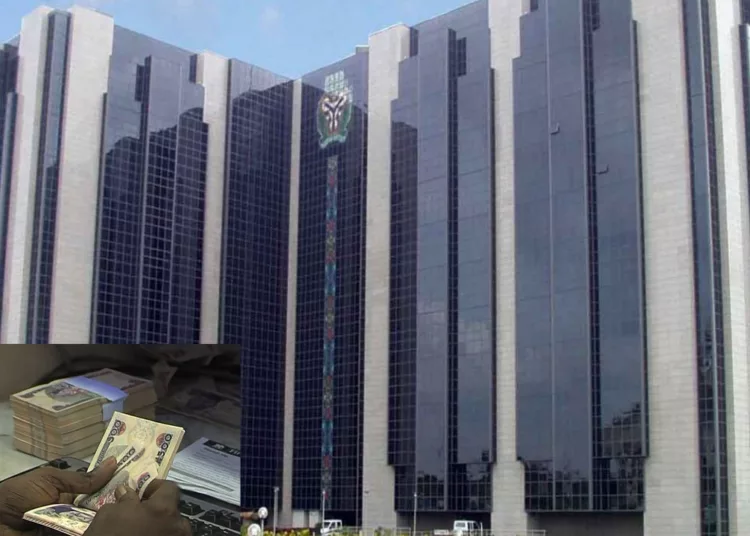The reintroduction of the Retail Dutch Auction System (RDAS) is meant to alleviate the persistent demand pressure in the FX market and to enhance the process of price discovery, BUKOLA ARO-LAMBO writes.

In managing the unrelenting liquidity pressures at the foreign exchange market, the Central Bank of Nigeria (CBN) resuscitated the Retail Dutch Auction System (RDAS), making the first dollar sales of $876.3 million at a rate of N1,495 per $1 to 26 qualified banks.
According to the CBN, the reintroduction of the RDAS is meant to alleviate the persistent demand pressure in the FX market and to enhance the process of price discovery and analysts believe the move will curb the volatility at the foreign exchange market at least in the short term.
Used by the CBN in 1987, 1990 and 2002-2006, the RDAS is being brought back more than 10 years after the former CBN Governor Godwin Emefiele scrapped it alongside the Wholesale Dutch Auction System (WDAS). The CBN under Emefiele had made the decision due to the need to reduce market fragmentation and speculative attacks on the naira. It had subsequently moved towards managing the exchange rate more directly through the interbank market, marking the end of the DAS in Nigeria.
Under the RDAS, eligible customers could directly participate in the forex auction, bidding for the currency at a rate they were willing to pay. The auction system was designed so that the lowest bids were filled first, and the marginal rate became the official exchange rate for that auction.
At the auction held last week, the CBN had supplied $876.3 million, approximately 75 per cent of the $1.2 billion requested by 32 dealer banks, disqualifying bids from six banks due to submission errors.
Data from the CBN showed that United Bank for Africa, First City Monument Bank, Stanbic IBTC, Wema Bank, Suntrust Bank and Rand Merchant Bank were disqualified with the first five submitting late with no bid rates and no bid received from the last two respectively.
A statement from the apex bank and signed by its director, Financial Markets department, Dr Omolara Duke, explained that the RDAS starts with a call for the submission of bids for an auction and all the bids are collated and arranged from the highest bid to the lowest bid.
“The Auction mechanism is predicated on the volume of the forex that is available for sale. In addition, it is also to give forward guidance of the price of exchange rate that will promote forex market stability. The cut off point of an Auction is the lowest exchange rate that clears the volume that is offered for the Auction.” It stated.
The apex bank explained further that “the call for bids were in naira/US dollar currency pair for unmet forex demand backed by verifiable Forms A and M only. All bids were password protected and submitted through the dedicated email address provided by CBN between 09:00 a.m. and 3:00 p.m. Bids received after 3:00pm were disqualified. Passwords for the bids were sent after the close of the auction. The total bids received was valued at $1.191 billion. The range of successful bids was N1495- N1650/$ across 26 banks.”
Commenting on the development, analysts at FBNQuest believe that the reintroduction of the RDAS will see the volatility at the forex market reduce in the second half of the year. “Given the improvements in FX inflows, the FX market may experience reduced volatility in H2’24. While this development could contribute to a more stable economic environment, the impact on import costs and inflation will depend on broader market conditions and policy responses” the analysts said.
Analysts at Cordros Research opine that the RDAS had eased pressure on the naira which had seen a 2.7 per cent appreciation week on week to N1,574.20 to the dollar at the Nigeria Autonomous Foreign Exchange Market (NAFEM) despite a reduced inflow at the window.
“The naira appreciated in the week on reduced demand pressure following the successful completion of the CBN’s RDAS. Additionally, FPI participation in the forex market improved as the CBN’s move to stabilise the naira increased investor confidence. While we anticipate forex liquidity will remain frail over the short-term, we expect the naira to trade with less volatility due to the moderation in demand pressure” analysts at Cordros note.
However, analysts at Afrinvest West Africa are a bit pessimistic on the long term impact of the RDAS. Whilst applauding the move to stabilise the forex market, the analysts note that several challenges remain that questions the long-term sustainability of the approach and other stop-gap measures recently introduced by the CBN.
“We are of the view that the apex bank does not possess the required financial war chest to meet the average forex demand for an extended period. Recall that Dr. Cardoso, during the last MPC meeting, stated that the country’s foreign reserves of $37.1 billion could cover 11 months’ imports.
This implies a monthly average import spend of $3.3 billion.
“Regardless of the estimate considered, the FX reserves could run dry in six to nine months should the magnitude of the bids at the auction be met weekly and accretion rate does not offset outflows. In addition, seasonality trends suggest that forex demand for manufacturing imports, educational commitments and summer travels peaks in Q3. Hence, we are of the view that the measure will only temper the demand pressure that is building up,” they pointed out.
Copied
